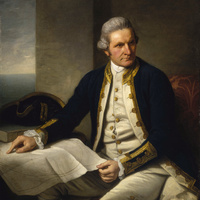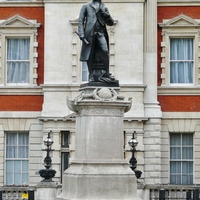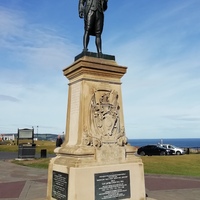How to cite this page Comment citer cette page
Cook, James
Person
- Media metadata | Métadonnées multimédias
- has biography | a une biographie
-
British colonial explorer, cartographer and naval officer in the eighteenth century.
Cook is most well know for his three voyages (1768-1771; 1772-1775; 1776-1779) in the Pacific Ocean, which set off British colonial expansion into the region. During his first voyage, Cook's first encounter with the Māori people in New Zealand ended in the deaths of nine Māori. In 1779, during his third and final voyage, Cook was killed trying to take Kalaniʻōpuʻu hostage, who was the ruling chief (aliʻi nui) of the island of Hawaii at the time.
The legacy of Cook's expeditions, and in particular its consequences for the indigenous people of the Pacific Ocean, has been highly contested in the present. In 2019, for instance, the British government expressed its regret for the killing of Māori people during Cook's first voyage, although it stopped short of a full apology. In 2024, a statue of Cook in Melbourne, Australia was sawn off in protest over the Australia Day public holiday, with the words "THE COLONY WILL FALL" graffitied on the plinth underneath. - was born | est né
- 27 October 1728
- died in | est mort par
- 14 February 1779
- has nationality | a la nationalité
- United Kingdom of Great Britain and Ireland
- has type | est de type
- depicted
- is referred to by | est référencé par
- Wikipedia
- Art UK
- National Portrait Gallery
- The Conversation - Cook 250
- Charlotte Graham-McLay, 'UK expresses 'regret' over Māori killings after Cook's arrival in New Zealand', The Guardian, October 2 2019
- Emily Wind, 'Captain Cook statue sawn off and Queen Victoria monument defaced in Melbourne on eve of 26 January', The Guardian, January 24 2024



